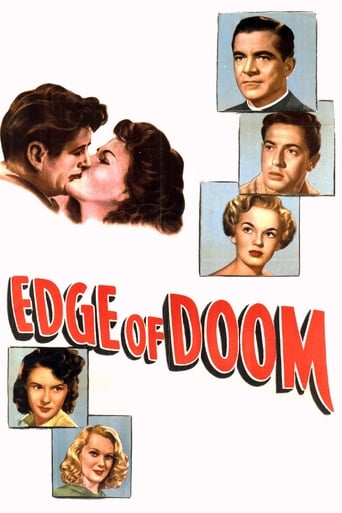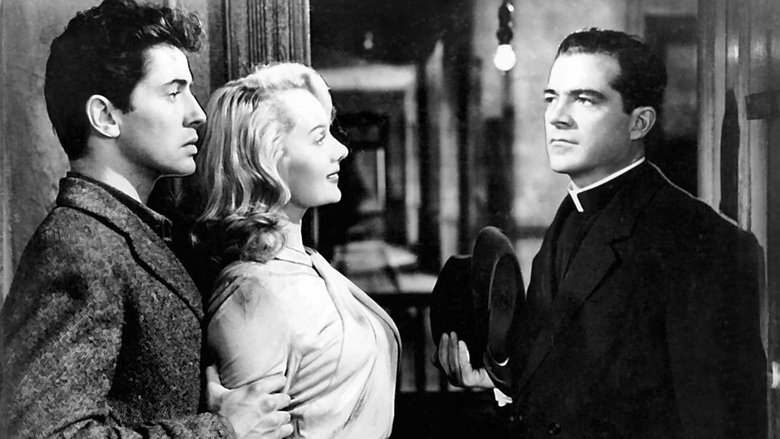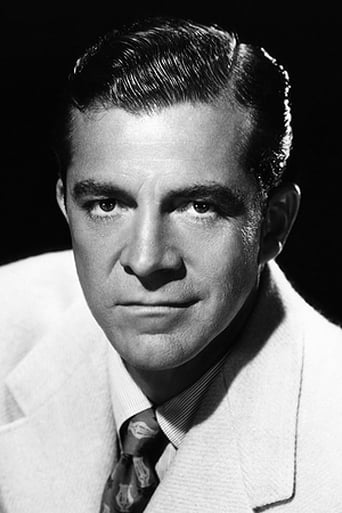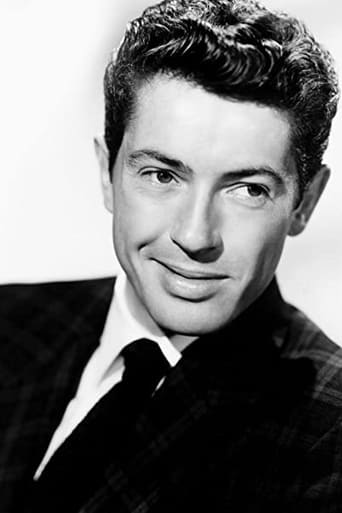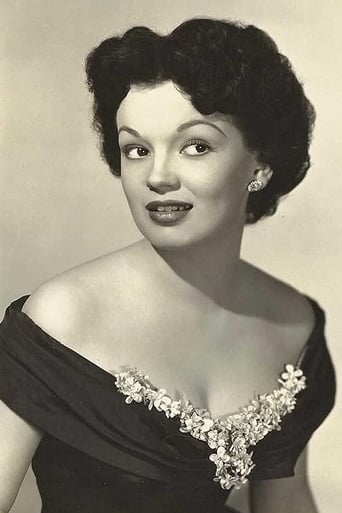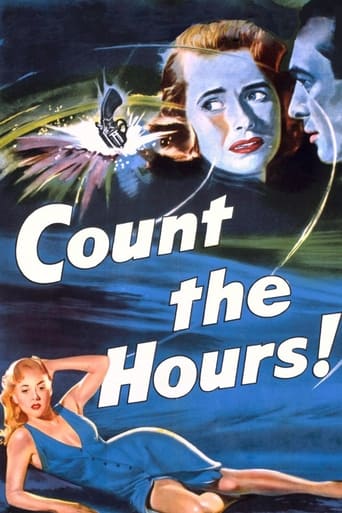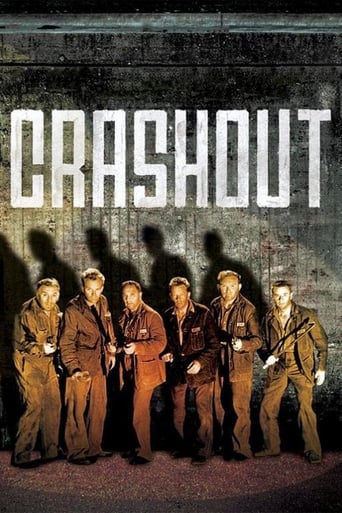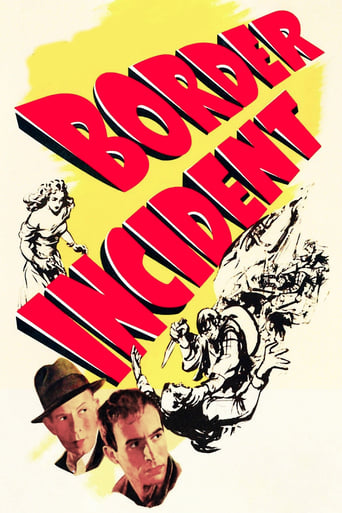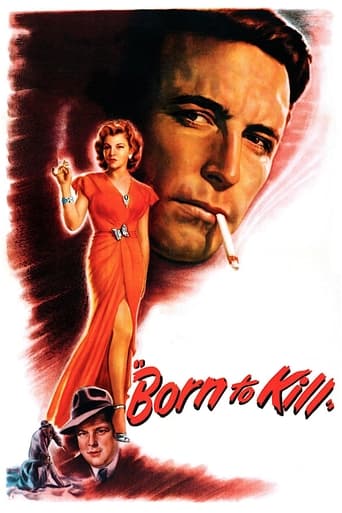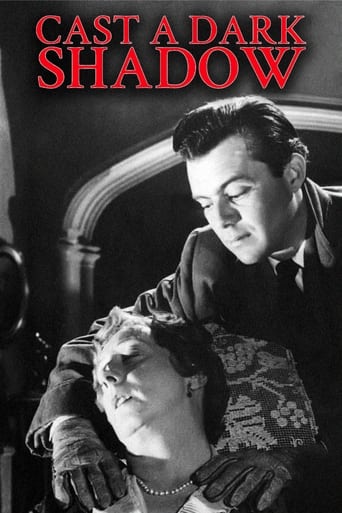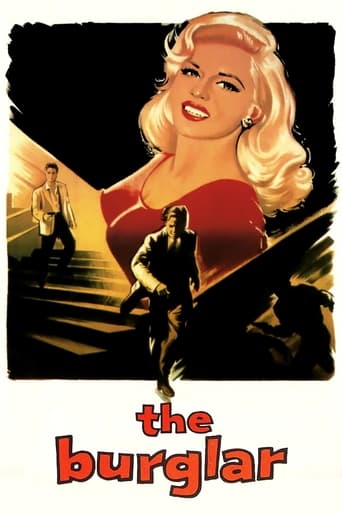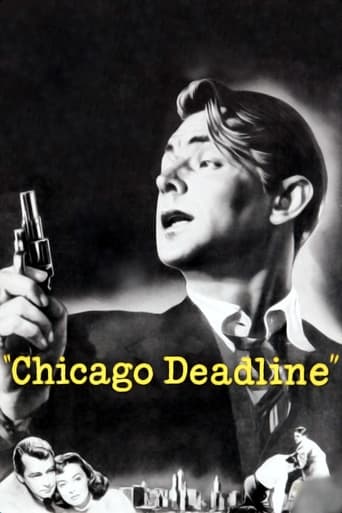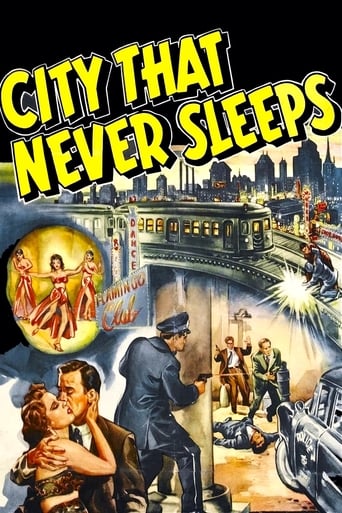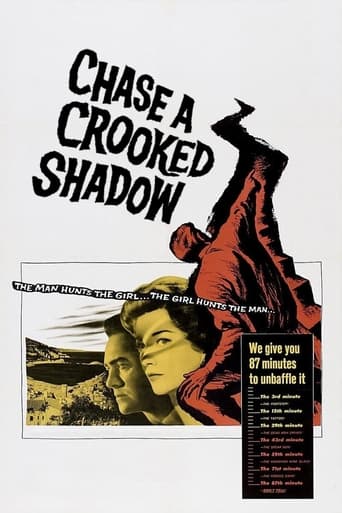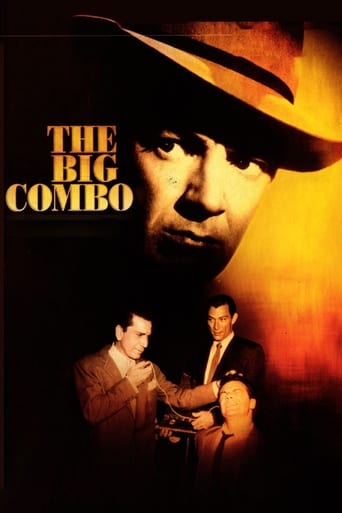Edge of Doom (1950)
A priest sets out to catch the man who killed one of his colleagues.
Watch Trailer
Cast


Similar titles
Reviews
Good movie but grossly overrated
I really wanted to like this movie. I feel terribly cynical trashing it, and that's why I'm giving it a middling 5. Actually, I'm giving it a 5 because there were some superb performances.
This is a gorgeous movie made by a gorgeous spirit.
This movie tries so hard to be funny, yet it falls flat every time. Just another example of recycled ideas repackaged with women in an attempt to appeal to a certain audience.
Edge of Doom is directed by Mark Robson and adapted to screenplay by Philip Yordan from the novel written by Leo Brady. It stars Dana Andrews, Farley Granger, Joan Evans, Robert Keith, Paul Stewart, Mala Powers and Adele Jergens. Music is by Hugo Friedhofer and cinematography by Harry Stradling.Give evil a root and it will grow and thrive.Relentlessly grim in thematics and mounted in classic film noir style by Robson and Stradling, if it were not for the heavy religio angle then we would be talking about one of film noir's highlights. Bookended by pious pontifications as Dana Andrews' priest offers his wisdom to a new understudy, everything in between is tinged by a bleakness as Granger's poverty stricken young man desperately tries to arrange a "big" funeral for his just deceased mother.With a mother fixation firmly planted on his shoulders, Martin Lynn trawls through the oppressive and unforgiving city looking for help but finding none. His employer, the church, nobody, so when his temper finally snaps he also has to contend with guilt and the police circling him like a straight-jacket. All the while Father Roth is hanging around to show the good side of the church, even turning into the punching preacher at one point. But can he grant salvation to a frantic Martin Lynn as his soul begins to fracture?Samuel Goldwyn effectively stopped backing the picture and Granger pretty much disowned it, unsurprisingly it flopped at the box office and has sort of languished in noir purgatory ever since. Shifting too much of the focus onto Father Roth really hurts the film, where Goldwyn had Robson do a re-edit and hired Ben Hecht to spruce up the religious theme. There's also a problem with Granger over acting at times, while Andrews is a touch miscast in a role tailor made for Pat O'Brien. Though the support players, particularly Keith and Stewart, more than compensate.There's enough bite in the narrative to do justice to the excellent visuals, a cynicism that haunts the shadows of this seamy side of the city, but this really should have, and could have, been so much better. 7/10
My view is that this movie falls somewhere between hose two genres. I'd call it closer to soap opera. And how, with all the talent involved, it failed so badly, makes it something of a mystery as well.The same year, "Side Street" came out. Farley Granger was heartbreaking. He had been heartbreaking in the most poetic of all noirs two years earlier, too: "They Live By Night." Here he shows, and elicits, no emotion at all. His character is written as someone who's a little slow. But why? There were lots of young men living with, and fanatically attached to their mothers. There still are some.)(By the way, I read the entry by the person whose father wrote the original book and feel empathy. There is certainly potential here. The movie just seems to have lost its way -- and lost it very early, despite the ministrations of a fine director, Mark Robson, and a superb screenwriter, in Philip Yordan.) None of it rings true, to put it bluntly. None of the major parts, that is. The florist for whom Granger works is well played and convincing. But the major characters are not credible.) Dana Andrews is miscast or ill directed as the understanding young priest who tries to help Granger. He goes in for such seriousness he seems to be speaking his every word in a hushed sounds. His delivery reminds me of Anne Baxter's when she is trying to convince people of her sincerity in "All About Eve." She convinced them for a while but he doesn't convince me. None of the principals do. And what a shame, too: It has potential and is performed, written, and directed by major talents.None is at his best here.
This film was told by veteran priest Dana Andrews to a young troubled priest. The tale was about a real-life murder and how Andrews came to become involved in counseling this young killer. The intent of the story was to make you feel sorry for Farley Granger and understand his motivation--something I just KNEW would be a major thrust in the film since Farley made a habit of playing young "good" men who somehow go bad (as in ROPE and THEY LIVE BY NIGHT). The problem with this whole angle, though, is that apart from Granger's poverty, I didn't feel the least bit sorry for him or understand the pointless murder. Granger's character was very whiny and weak and frankly he disgusted me with his petulant manner throughout the film. Now Andrews was excellent as a priest--forgiving, kind and yet tough when he had to be and I could understand why, as a priest, he worked so hard to save Granger's soul--even if Granger was a childish idiot. In fact, aside from Granger's character, the film was very good but the general unlikability of him really did a lot to deaden the impact of the film. A nice try to make a film with a social conscience, but it just didn't fly and is just a time-passer.
When Edge of Doom was first released, audiences turned away from it with the coldest of shoulders. It was yanked out of circulation so that a pair of bookends could be shot, in which the story becomes a kind of parable told by a wise old rector (Dana Andrews) to a younger priest undergoing a pastoral crisis. The filmmakers shouldn't have bothered: Edge of Doom remains one of the bleakest, least comforting offerings of the entire noir cycle (no mean feat), and probably the most irreligious movie ever made in America. When Farley Granger's devout but tubercular mother dies, it precipitates a rampage against everything that makes up the prison of his life: his ugly urban poverty; his penny-pinching employer who offers promises rather than a raise; the Church, which once refused burial to his father, a suicide, and is now refusing his mother the "big" funeral he thinks he owes her; the smarmy, sanctimonious undertaker. Long story short, he ends up murdering a crusty, hell-and-brimstone priest. The police nab him for a robbery he didn't commit but end up with a different murder suspect. But compassionate pastor Dana Andrews (now in flashback) suspects the truth.... There's something almost endearingly Old Left about the savagery of the indictment leveled against society's Big Guns: Church, police and capitalism. The slum where Granger lived with his mother makes Ralph and Alice Kramden's Chauncey Street digs in Brooklyn look cozily inviting (Adele Jergens, as the slatternly wife of a neighbor, observes, "Smart people don't live here"); outside, the nighttown is noir at its most exhilaratingly creepy. It's easy to see why the public, on the cusp of the fabulous fifties, shunned this movie, whose unprettiness is uncompromised. But it's as succinct a summing up of the noir vision as anything in the canon.

